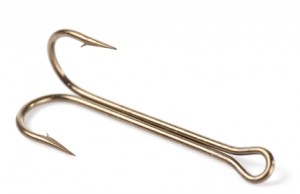 Step Four: Learn to live 24 hours at a time
Step Four: Learn to live 24 hours at a time
For many, this is the real secret to success. The ‘One Day at a Time’ slogan is so common precisely because it represents such a profound change in the way people live.
When we’re feeling depressed, we tend to focus on past events and future prospects. The past seems like a succession of mistakes and the future looks pretty hopeless. This is how we put an end to that.
Living 24 hours at a time takes self-discipline. You have to renounce your regrets and worries, at least for the moment. One method: Identify the thoughts that seem to trigger feelings of depression, shame, or anxiety. Then as they arise, stop them. Picture yourself approaching a stop light on a city street. The light turns red. Stop. Then take a second to clear your mind by focusing on something you need to do today. A task, a duty, or just something you want to accomplish. As the bad feelings recede, picture the light turning green.
Sadness and regret live in the past; anxiety lives in the future. If you can focus on today, you’ll have substantially less of both. That’s important because recovery is really about today. Accumulate a bunch of small positive accomplishments over a succession of ‘todays’, and you’ll be stunned at exactly how much your life has changed for the better.
Step Five: Rearrange your lifestyle to support recovery
The goal – a lifestyle that supports recovery, and permits us to be both safe and content.
We know from experience that any good feelings brought about chemically are short-lived and inevitably result in still more bad feelings. So let’s skip those, huh? We can do better.
We know that certain other behaviors, like compulsive overeating or overspending or brief sexual liaisons or dropping coins in slot machines can get out of hand and make us feel worse about ourselves. So we can skip them, too. We’re supposed to learn from our experience, and from that of others who came before us, right?
Once we’ve taken those activities off the table, what’s left? That’s what you’re in the process of figuring out. You have to try new things. Be open. Don’t assume something won’t help simply because you can’t imagine it.
It’s the addict’s dilemma: What will take the place of drugs and alcohol? Why, life, of course. And don’t forget to count each day clean and sober as an unmitigated success. A lot of other smart folks aren’t able to manage it. You’re the fortunate one.
Step Six: Put recovery first
The saying goes that if you want recovery to last, put it first. Consciously, through an effort of will. Make decisions that reflect recovery as your priority.
That doesn’t mean you care less about other things. It means you care more about your recovery. In practical terms, it means working our program even when we don’t want to. Or when others would rather we put their needs first. Hopefully they’ll understand someday.
Recovery With Co-Occurring Disorders Plan -More from this series:
- A Simple Plan: Recovery With Co-Occurring Disorders
- Recovery With Co-Occurring Disorders: The First Three Steps
- Recovery With Co-Occurring Disorders: Steps 4, 5 and 6
- Recovery With Co-Occurring Disorders: Step Seven
- Recovery With Co-Occurring Disorders: Steps 8 & 9
- Recovery With Co-Occurring Disorders: Step Ten









